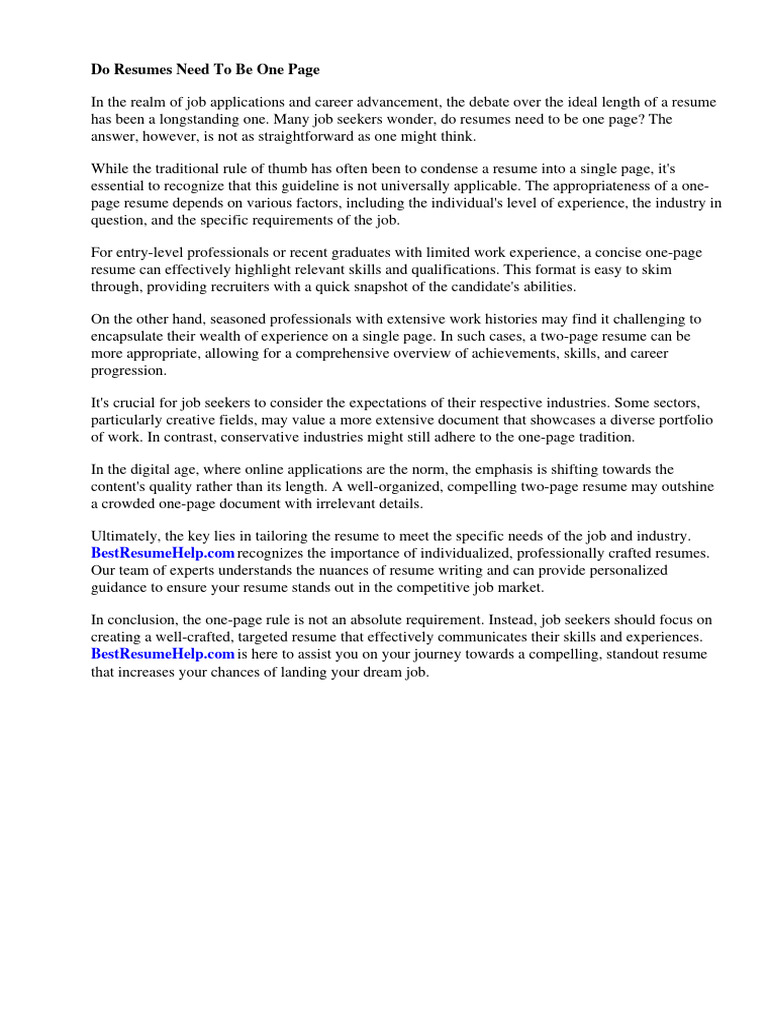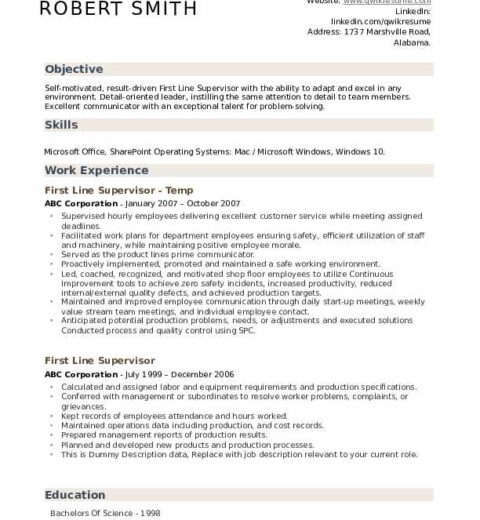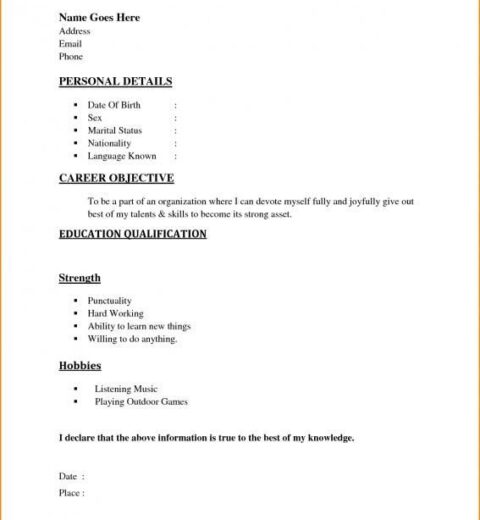In the evolving landscape of professional recruitment, the question of whether resumes need to conform to a one-page format continues to generate substantial debate. As we move into 2025, this inquiry warrants a thorough exploration. The traditional notion of a concise one-page resume has been challenged by changing industry standards, the emergence of new career trajectories, and the unique needs of diverse job seekers.
The one-page resume rule has long been a benchmark in resume writing, especially for entry-level positions. This norm arose from the belief that brevity is key in a fast-paced hiring environment, where recruiters often sift through countless applications. Indeed, the objective of a resume is to encapsulate one’s career achievements, skills, and experiences succinctly. A conventional one-page format necessitates a stringent selection of content, which can sometimes lead to the omission of critical information.
As the job market expands and diversifies, however, the rigid adherence to a one-page limit has begun to wane. In many professions, particularly in fields that value extensive experience, such as academia, healthcare, and technology, a two-page resume is not only acceptable but often expected. A more expansive resume allows individuals to elaborate on significant projects, advanced degrees, certifications, and relevant publications. This depth of detail aids potential employers in making informed decisions about a candidate’s suitability for complex roles.
Additionally, the expectation for resumes has evolved as industries adapt to the requirements of a modern workforce. In the digital realm, for example, applicants may leverage platforms such as LinkedIn to provide a comprehensive professional narrative beyond what a traditional resume can encapsulate. This symbiotic relationship between a concise resume and an expansive online presence allows candidates to convey their qualifications in various formats and depths.
Furthermore, one must consider the context in which one is applying. Different sectors have disparate norms and customs associated with resume formats. Creative industries, such as graphic design or marketing, might favor a visually engaging multi-page layout that showcases portfolios alongside resumes, while corporate environments may continue to espouse the one-page tradition. Accordingly, candidates should conduct thorough research into industry standards, aligning their resume format with prevailing expectations to maximize their chances of success.
Another pivotal aspect concerning the length of resumes involves the delineation of experience levels. For those entering the job market, the challenge lies not solely in presenting a one-page resume but in effectively demonstrating their potential and transferable skills. Internships, volunteer work, and extracurricular activities can all be woven into a compelling narrative that underscores qualifications, even within a limited space.
Conversely, seasoned professionals or those seeking specialized positions may require more extensive documentation. Here, the benefits of a comprehensive two-page resume become apparent. Employers in specialized fields often seek candidates with proven expertise and a thorough track record. A multi-page layout enables applicants to reflect this breadth of experience, encompassing detailed descriptions of roles held, technologies mastered, and accomplishments attained over time.
One must also consider the vital role of keywords in the digital hiring landscape. Applicant Tracking Systems (ATS) have become ubiquitous in the initial stages of the recruitment process. These systems parse resumes for relevant keywords to ensure candidates meet specific criteria. Consequently, resumes—regardless of length—must be crafted carefully to include pertinent keywords, which may necessitate additional elaboration beyond a single page.
Ultimately, the decision regarding resume length should bear in mind the individual candidate’s unique career path and the specific demands of the job for which they are applying. Tailoring resumes to highlight strengths and align with job descriptions is imperative. Therefore, a one-size-fits-all approach is both impractical and unwise. Job seekers should dynamically adjust their resumes, whether choosing to condense content or broaden it based on their audience
In conclusion, as we advance towards 2025, resumes are increasingly reflecting the complexity of modern careers. The question of whether they need to be limited to one page cannot be answered with a universal decree. Instead, successful resumes will be those that embrace flexibility, adapt to industry standards, and reflect the individual journey of the candidate. Ultimately, whether a resume is one page or two, clarity, relevance, and a compelling narrative will reign supreme in determining its effectiveness. Job seekers should endeavor to present their credentials in a manner that resonates with potential employers while remaining attuned to the evolving trends in resume formatting. As the job market continues to transform, so too should the resumes that navigate it.




